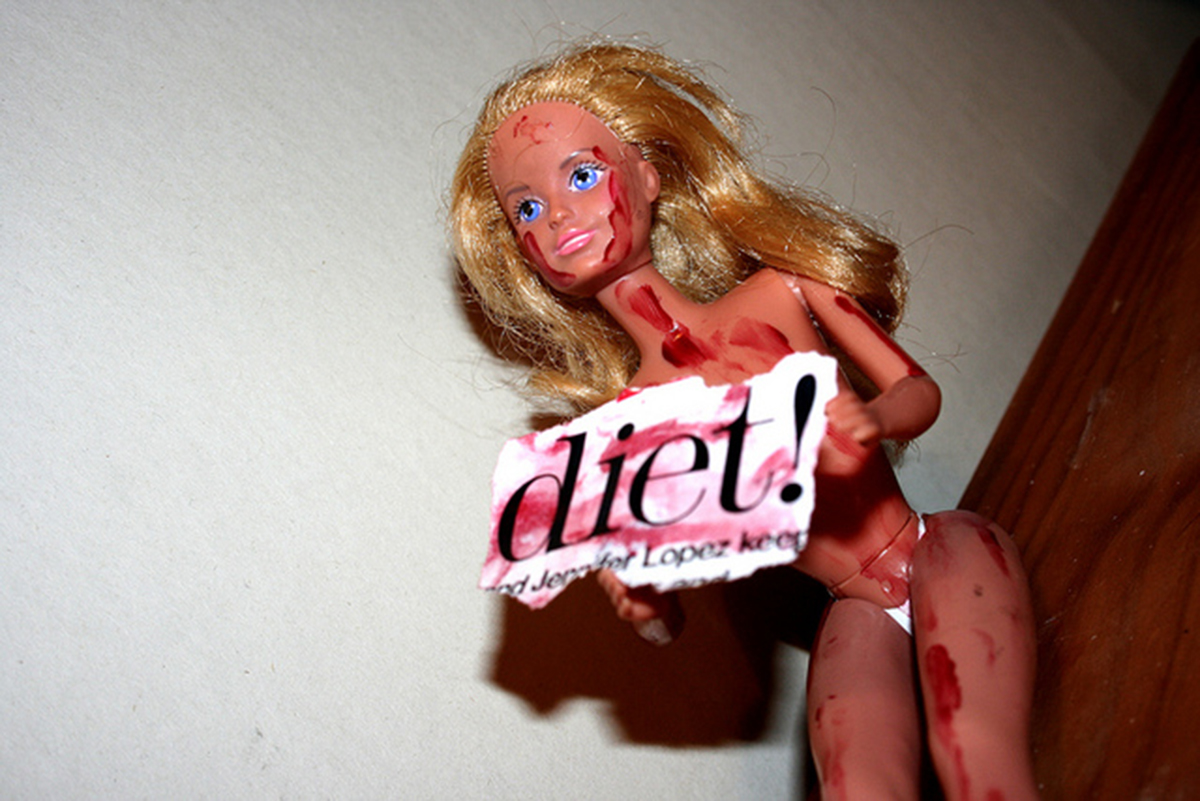Table of Contents
I have a nine-year old daughter. Looking at her, acting out elaborate Playmobil scenarios with her younger brother until they either argue or excitedly drop the game to have dinner (and dessert!), I can see that she has both grown and matured enormously over the last few years, but also that she's still very much a little girl for whom the worries of adult life are so very far away.
Looking at her, it is hard to believe that a shocking 80 percent of 10-year old girls in the United States, girls just one year older than her, have already been on a diet at least once in their life. Looking at her, the National Eating Disorders Association's report that between 40 and 60 percent of six to 12 year old children are worried about their weight, with 70 percent wishing they could be slimmer, isn't just surprising but downright heartbreaking.

We live in a world where children get eating disorders. (And lest that statistic about 80 percent of 10 year-old American girls having been on a diet fools you, I should add that about 20 percent of children with eating disorders are boys.) We live in a world where children get eating disorders, and like everyone with an eating disorder, the underlying issue is about emotions rather than food. As Twenty-First Century parents, this too is a hazard we must navigate.
Preventing Eating Disorders In Children
Bullying, abuse, depression, anxiety — these are the kinds of issues that can lead to eating disorders in children. The first bit of advice any parent who wants to prevent an eating disorder in their child should be given is, then, to raise a child in a loving family where they are valued and respected. That bit of advice would closely be followed by the encouragement to step in if your child is bullied in school, and to seek help if mental health problems (which no, aren't your fault as a parent) show up.
Valuing healthy foods, ideally eating during family dinners, is one way to foster good attitudes towards food. Most kids love sweets and junk food as well, and it's important not to shame them for doing so, or to use food as punishment or a bribe to invoke desirable behavior. Forcing children to clean their plate or criticizing them for their weight isn't a good idea.
READ Eating Disorders (Anorexia, Bulimia and Binge Eating) Among Males Becoming Common
Parents should refrain from shaming anyone — very much including themselves — for the way they look, whether they are fat, thin, disabled, able-bodied, short, tall, or whatever else. The shame-filled messages found in the media can be examined together in a safe setting, perhaps even during family meals around the dinner table, and sports should be encouraged as a way to be healthy and to find fun, not as a way to lose weight.
While there's a lot we can do to raise children who value their bodies and have a healthy attitude towards eating, we also have to acknowledge that we're not the only ones who have influence over our kids.
- Photo courtesy of Danielle Helm: www.flickr.com/photos/daniellehelm/3967455172/
- Photo courtesy of Laura Lewis 23: www.flickr.com/photos/lauralewis23/6917471965/


Your thoughts on this